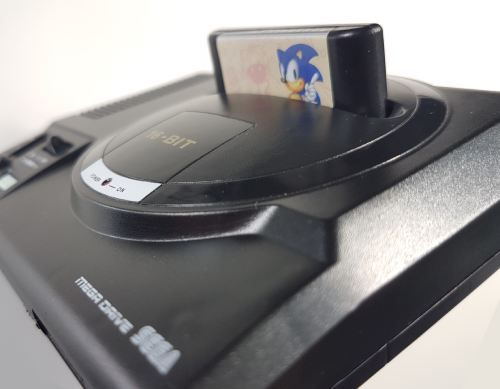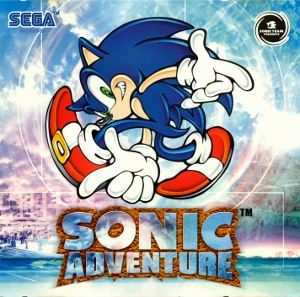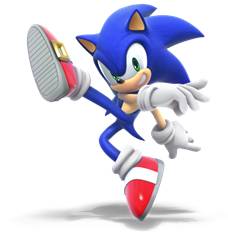With about 30 years of hindsight, let's reflect on the heated competition in which Sonic the Hedgehog was dead center of. Here's what happened and what wrong three decades ago:
Sonic Saves The Sega Genesis
Old-school gamers have fond memories of the Sega Genesis, the company's first foray into the home-console market. It's typically seen as Sega's peak in the console business, which it was, but not until the original Sonic the Hedgehog game was released in 1991.
You see, the Genesis launched three years before that with a wimp. The console did little to eat into Nintendo's market share, which was estimated to be 90 percent in the United States in 1990. Then one blue-haired, super-speedy hedgehog flipped the industry upside down.

Sonic was Sega's counter to Nintendo's Mario character and game franchise. It effectively positioned Sonic as its "mascot" per se and gamers ate it up. Thanks to the iconic game (which was packaged with the console), plus a cheaper system cost than the Super Nintendo, Sega outsold its rivals four straight Christmas seasons during the '90s inside the United States.
Sega Does What Nintendon't
In the history of video games, the above catchphrase is one of the most iconic. Sega used the tagline in America to differentiate itself from Nintendo. In ads, Sega positioned itself as better - in terms of game library, graphics, and super-fast gameplay. Of course, Sonic came to symbolize all three of those.
In fact, Sonic the Hedgehog was originally going to be "edgier" than the one you now know. The game's original developers - from Japan, of course - envisioned the character with fangs, a spiked collar, an electric guitar and a human girlfriend named Madonna. The American-based employees of Sega stopped it from happening and toned down the character's "goth-ness" per se.
With savvy marketing and Sonic the Hedgehog, Sega and Nintendo were neck-and-neck in the mid-90s, at least in America. Despite Sega's Japanese roots, the company struggled back home where Nintendo, another Japanese firm, was firmly entrenched as No. 1. This spurred Sega to develop a brand-new console, which signaled the beginning of the end of this rivalry.
Sega Falters With the Saturn
The Sega Saturn launched at the tailend of 1994. However, this time the console wasn't just pitted against Nintendo. No, no, there was a new player in town (also from Japan) and it was called the Sony Playstation. Like Sega, Sony also positioned itself as the console for more "mature" games, which Nintendo shied away from to protect its family-friendly image.
The Saturn failed to meet the success of the previous Genesis. In fact, it actually cannibalized the predecessor's success. Gamers remained latched onto the Genesis, which Sega slowed production of to ramp that of the Saturn. Production issues continued to plague the Saturn, which was felt by game developers and players alike.
It's also worth noting that a Sonic the Hedgehog game was never released for the Saturn console. Not one. Not supporting your new console with your most iconic franchise feels like an unthinkable mistake, but it actually happened.
Too Little Too Late With The Dreamcast
Rather than fix the Saturn, Sega opted for a complete replacement in the Dreamcast console. It was released in late 1998 with a brand-new Sonic Adventure game right after. The game was a resounding success with 2.5 million copies sold, but the console itself wasn't.

By this time, Sega had shot itself in the foot one too many times. Both Nintendo and Sony were far, far ahead of it in the console war - and they weren't relinquishing those leads no matter how beloved Sonic was. Sega pulled the plug on the Dreamcast in 2001 and left the console business for good.
While Sonic games trickled into Nintendo and Playstation systems thereafter, it never re-captured the eyes of gamers like it did when it was Sega's own flagship franchise for their console. And that's been the story of the last 30 years (and counting).
Comments
No comments have been posted in response to this Blog post.


